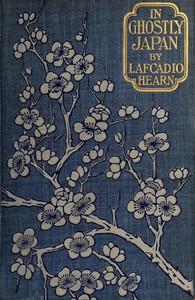Read this ebook for free! No credit card needed, absolutely nothing to pay.
Words: 187678 in 46 pages
This is an ebook sharing website. You can read the uploaded ebooks for free here. No credit cards needed, nothing to pay. If you want to own a digital copy of the ebook, or want to read offline with your favorite ebook-reader, then you can choose to buy and download the ebook.


: Woodrow Wilson as I Know Him by Tumulty Joseph P Joseph Patrick - Presidents United States Biography; Wilson Woodrow 1856-1924
INDEX
WOODROW WILSON AS I KNOW HIM
THE POLITICAL LABORATORY
My introduction to politics was in the Fifth Ward of Jersey City, New Jersey, which for many years was the "Bloody Angle" of politics of the city in which I lived. Always Democratic, it had been for many years the heart and centre of what New Jersey Democrats were pleased to call the great Gibraltar of Democracy. The ward in which I lived was made up of the plainest sort of people, a veritable melting pot of all races, but with a predominance of Irish, Germans, and Italians, between whom it was, like ancient Gaul, divided into three parts.
My dear father, Philip Tumulty, a wounded soldier of the Civil War, after serving an apprenticeship as an iron moulder under a delightful, whole- souled Englishman, opened a little grocery store on Wayne Street, Jersey City, where were laid the foundation stones of his modest fortune and where, by his fine common sense, poise, and judgment, he soon established himself as the leader of a Democratic faction in that neighbourhood. This modest little place soon became a political laboratory for me. In the evening, around the plain, old-fashioned counters, seated upon barrels and boxes, the interesting characters of the neighbourhood gathered, representing as they did the leading active political forces in that quaint cosmopolitan community.
No matter how far back my memory turns, I cannot recall when I did not hear politics discussed--not ward politics only, but frequently the politics of the nation and the world. In that grocery store, from the lips of the plainest folk who came there, were carried on serious discussions of the tariff, the money question, our foreign relations, and all phases of the then famous Venezuelan question, which in those days threatened to set two continents on fire.
The make-up of the little "cabinet" or group which surrounded my father was most interesting. There was Mr. Alexander Hamill, the father of Congressman Hamill of Jersey City, a student of Queen's College in Ireland and who afterward taught in the National Schools of Ireland, a well-read, highly cultured, broad-minded man of affairs; and dear Uncle Jimmie Kelter, almost a centenarian, whose fine old gray hair gave him the appearance of a patriarch. Uncle Jimmie nightly revelled in the recital to those who were present as ready listeners, his experience when he was present at a session of the House of Parliament in London and heard the famous Irish statesman, Daniel O'Connell, denounce England's attitude of injustice toward Catholic emancipation. He loved to regale the little group that encircled him by reciting from memory the great speech of Robert Emmett from the dock, and excerpts from the classic speeches of the leading Irish orators like Curran, Sheridan, and Fox.
While these discussions in the little store wended their uneasy way along, a spark of humour was often injected into them by the delightful banter of a rollicking, good-natured Irishman, a big two-fisted fellow, generous- hearted and lovable, whom we affectionately called "Big Phil." I can see him now, standing like a great pyramid in the midst of the little group, every now and then throwing his head back in good-natured abandon, recounting wild and fantastic tales about the fairies and banshees of the Old Land from whence he had come. When his listeners would turn away, with skepticism written all over their countenances, he would turn to me, whose youthful enthusiasm made me an easy victim upon which to work his magic spell in the stories which he told of the wonders of the Old Land across the sea.
I loved these delightful little gatherings in whose deliberations my dear father played so notable a part. Those kind folk, now off the stage, never allowed the spirit of provincialism to guide their judgment or their attitude toward great public affairs. I recall with pleasure their tolerance, their largeness of view, and fine magnanimity which raised every question they discussed to a high level. They were a very simple folk, but independent in their political actions and views. Into that little group of free, independent political thinkers would often come a warning from the Democratic boss of the city that they must follow with undivided allegiance the organization's dictum in political matters and not seek to lead opinion in the community in which they lived. Supremely indifferent were these fine old chaps to those warnings, and unmindful of political consequences. They felt that they had left behind them a land of oppression and they would not submit to tyrannous dictation in this free land of ours, no matter who sought to exert it.
In this political laboratory I came in contact with the raw materials of political life that, as an older man, I was soon to see moulded into political action in a larger way in the years to come. I found in politics that the great policies of a nation are simply the policies and passions of the ward extended. In the little discussions that took place in that store, I was, even as a youth, looking on from the side-lines, struck by the fine, wholesome, generous spirit of my own father. Never would he permit, for instance, in the matter of the discussion of Ireland--so dear to his heart--a shade of resentment or bitterness toward England to influence his judgment in the least, for he believed that no man could be a just judge in any matter where his mind was filled with passion; and so in this matter, the subject of such fierce controversy, as in every other, he held a judgment free and far away from his passionate antagonisms. I found in the simple life of the community where I was brought up the same human things, in a small way, that I was subsequently to come in contact with in a larger way in the whirligig of political life in the Capitol of the Nation. I found the same relative bigness and the same relative smallness, the same petty jealousies and rivalries which manifest themselves in the larger fields of a great nation's life; the same good nature, and the same deep humanity expressing itself in the same way, only differently apparelled.
One of the most interesting places in the world for the study of human character is the country store or the city grocery. I was able as a boy standing behind the counter of the little grocery store to study people; and intimately to become acquainted with them and their daily lives and the lives of their women and children. I never came in contact with their daily routine, their joys and sorrows, their bitter actualities and deep tragedies, without feeling rise in me a desire to be of service. I remember many years ago, seated behind the counter of my father's grocery store, with what passionate resentment I read the vivid headlines of the metropolitan newspapers and the ghastly accounts of the now famous Homestead Strike of 1892. Of course, I came to realize in after years that the headlines of a newspaper are not always in agreement with the actual facts; but I do recall how intently I pored over every detail of this tragic story of industrial war and how, deep in my heart, I resented the efforts of a capitalistic system that would use its power in this unjust, inhuman way. Little did I realize as I pored over the story of this tragedy in that far-off day that some time, seated at my desk at the White House in the office of the secretary to the President of the United States, I would have the pleasure of meeting face to face the leading actor in this lurid drama, Mr. Andrew Carnegie himself, and of hearing from his own lips a human and intelligent recital of the events which formed the interesting background of the Homestead Strike.
DOING THE POLITICAL CHORES
Free books android app tbrJar TBR JAR Read Free books online gutenberg
More posts by @FreeBooks

: Legends of the Northwest by Gordon Hanford Lennox - Dakota Indians Folklore; Ojibwa Indians Folklore; Dakota Indians Poetry; Ojibwa Indians Poetry


: Ghosts by Ibsen Henrik Archer William Translator - Families Drama; Europe Social conditions 19th century Drama; Tragedies; Mothers and sons Drama; Norwegian drama Translations into English; Domestic drama Banned Books from Anne Haight's list






